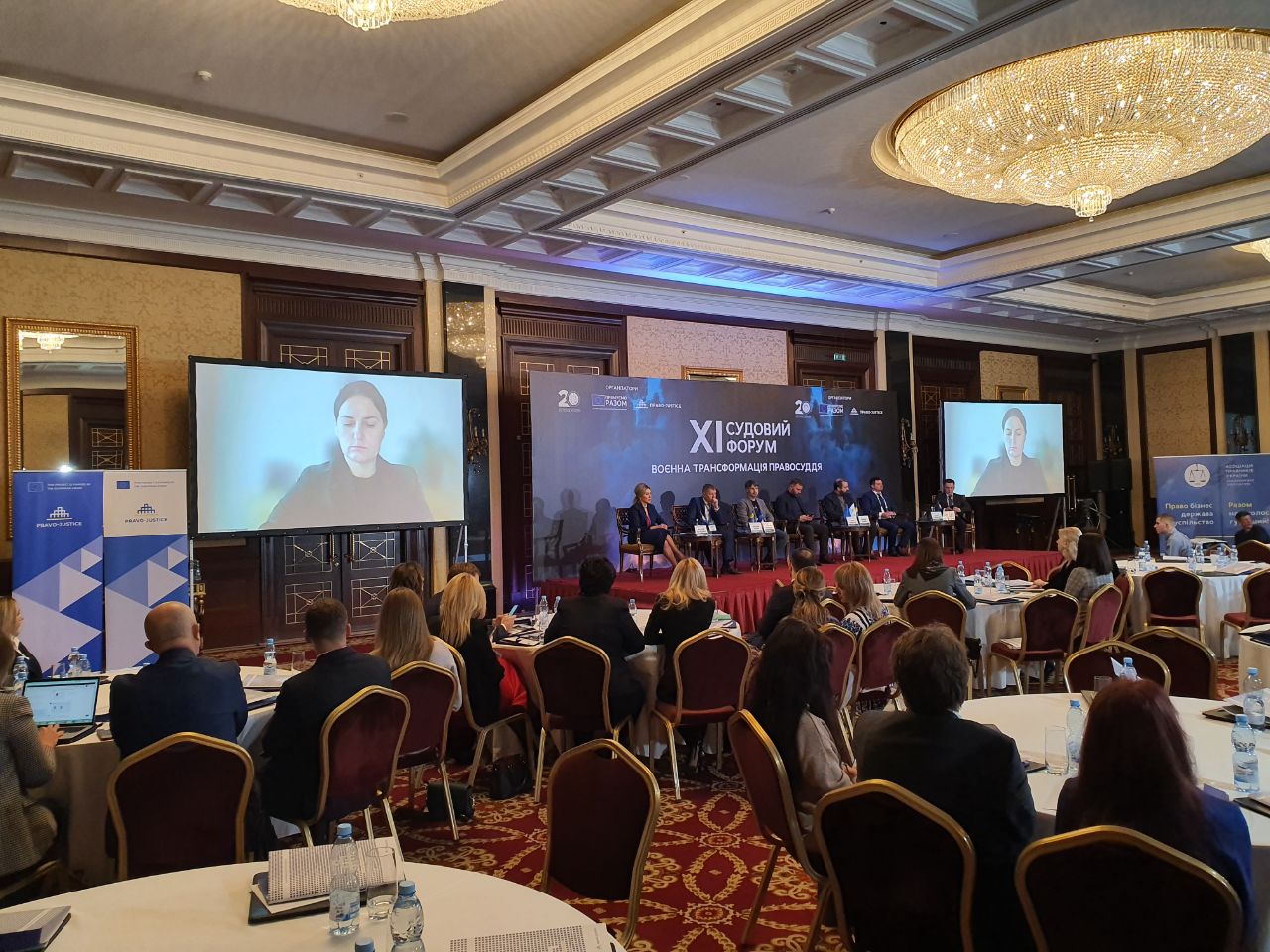Judiciary operations in Ukraine during wartime prevalent in the course of ХІ Annual Judicial Forum

The challenges Ukrainian judiciary faced in wartime were in the spotlight of virtually all discussions at the XI Annual Judicial Forum.
In particular, the following speakers delivered interventions pertinent to the topic: Roman Babii, Member of Parliament; Nataliia Blazhivska, justice of the Cassation Administrative Court within the Supreme Court; Oleh Horetskyi, managing partner of “Horetskyi and Partners” law firm; Roman Maselko, member of the High Council of Justice; Ivan Mishchenko, Deputy Chair of the Competition Commission for selecting HQCJ candidates; Bohdan Monich, Chair of the Council of Judges, and Anna Adamska-Gallant, Judiciary Component Lead, EU Project Pravo-Justice.
In particular, Roman Maselko, a member of the High Council of Justice stated that judicial reform should continue even in wartime. “We understand that we will not be able to join the EU without judicial reform, but we also understand that this is what our society needs; those who will come back from the front lines after Ukraine has won will also ask about the victories on our front,” said Roman Maselko.
According to Maselko, judicial reform consists primarily of forming the HQCJ and the HCJ. To make HCJ operational again, there must be 15 members. There is an opportunity for these 15 members of the HCJ to appear and for the authority to finally start working. It is very symbolic that this issue is in judges’ hands. I really hope that the Congress of Judges will be held in January, and all 8 vacant positions will be filled so that the HCJ finally starts working,” he said.
Otherwise, according to the member of the HCJ, it will create major issues for further implementation of judicial reform and other EU requirements.
In turn, Bohdan Monich, Chair of the Council of Judges covered the peculiarities of how the judiciary operates during the military aggression of the Russian Federation. The speaker also touched upon the problem of judges who engage in wartime collaboration. “Our position is absolutely clear – all traitors must be punished. Moreover, they do not have the right to receive any funds from the state budget,” said Bohdan Monich.
The Chair of the Council of Judges also spoke about arranging the Congress of Judges where delegates are to elect members of the High Council of Justice.
“There is a plan that on December 14, the Council of Judges will hold a meeting and at that meeting the specific dates of the Congress will be set; at this Congress, members of the HCJ will be elected. The first day of the Congress will take place on either January 10 or 11. The Congress itself will last 3 days. Respective preparatory work has already been carried out thanks to our international partners and the Pravo-Justice Project,” said Bohdan Monich, Chair of the Council of Judges of Ukraine.
Bohdan Monich emphasized that the Council of Judges is more interested than anyone else in making the HCJ work.
Anna Adamska-Gallant, Judiciary Component Lead, EU Project Pravo-Justice expressed confidence that Ukraine, with the support of international experts, will successfully complete the judicial reform, thereby fulfilling one of the key requirements towards EU membership.
“Ukraine will win the war and become a member of the EU, and Ukrainian courts will continue their stable operations in peacetime,” said Anna Adamska-Gallant.